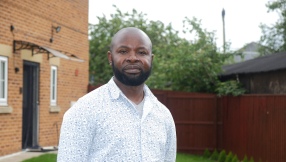Entrenched opposition to women's ordination is still blocking the Church of England's attempts to improve diversity among its senior leadership, its ruling general synod was told today.
The Archbishop of York said the CofE was beset with a 'spiritual problem' in its failure to appoint more women and black, asian and ethnic minority clergy to high profile roles and insisted the Church must do more.
It came after Caroline Spelman MP, who as second church estates commissioners acts as a liaison between the government and the Church, said she came under regular pressure from the House of Commons, including the speaker John Bercow, to 'get on with it' in improving diversity.
'It is clear the CNC [Crown Nomination Commission, the body that selects bishops] has got more work to do in enabling the Church to truly reflect the diversity of the people it serves,' she said.
'Ensuring the Church is a diverse body must be a key consideration of the CNC at all stages of the appointment process.
'Fundamentally people want to see people like themselves in leadership. It is a well known organisational fact that diversity improves decision making. Surely the Church, which has a gospel imperative for inclusion, should do even more to lead by example in promoting diversity in its leadership.'
The CofE has allowed women bishops since legislation in 2014 and its guidance insists the 'Church of England is fully and unequivocally committed to all orders of ministry being open equally to all, without reference to gender'.
However a long-term member of the CNC, a secretive panel that selects bishops, said while reference to gender was rarely explicitly a reason for rejecting a bishop it was always a factor.
'I am fully convinced that none of those nominations in which I have participated where any individuals considered without reference to gender,' April Alexander told synod.
Another senior synod member, Aiden Hargreaves-Smith, said tackling the lack of diversity in the Church's leadership was 'embarrassingly urgent business'.
The Church of England welcomed its first women priests in 1994 but it was another 20 years before they were allowed into senior roles as bishops. However even since then only three women have been made senior 'diocesan' bishops and the majority of new appointments have gone to men.
The figures for BAME clergy are even lower. In 2015 only 3.5 per cent of clergy were non-white. There are still only a handful of BAME people in senior positions, despite the appointment last March of the Nigerian-born Woyin Karowei Dorgu, as bishop of Woolwich, and the Iranian-born Guli Francis-Dehqani as bishop of Loughborough.
Members of the CNC go through unconscious bias training to try and eliminate any preconceptions they have but the Church has admitted it may take a generation to fully eradicate prejudice.













